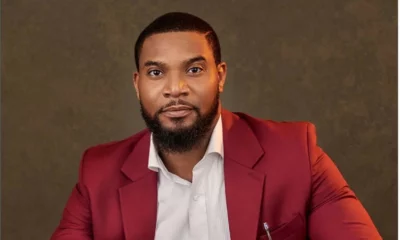***
Tell us how you got involved in this project, From the moment you received the call/email to the final execution
I first got involved with the movie through my instagram page, Yoruba Indigo. Lieze van Tonde, the assistant costume designer, contacted me from Cape Town, South Africa. She first sent me a message saying that they were working on a movie titled “The Woman King.” I said, “Oh.” When I received the message on my IG page, about working on the movie, I couldn’t really take it as real. Then later, she kept messaging me, and that’s how I got involved in the project. From there, we started to communicate. They went to my page and chose some of my pieces even before they started telling me what kind of designs or commissioned work they wanted me to do.
When you finally got a chance to watch The Woman King, what were your initial reactions to the film?
Oh my God, that was a shot, actually. I was in Lagos this year in September with my son, and I stayed in the Eko Hotel. I was visiting a family friend, and then I heard “The Woman King.” When they first contacted me, I didn’t even know the date the movie was going to be playing. I was telling my friend in Nigeria that there’s a movie going on all over Nigeria now, and it’s called The Woman King. I was like, “Do I even recognize this movie?” Until my family friend took me to the cinema, where I was sitting with my son, and all my buddies. Suddenly I saw the big screen, and I just jumped in the audience and said, “Oh, this is my fabric.” I could not even resist it. People looked at me like, “Who’s this guy?” I said, “This is my fabric on The Woman King. I designed some of these clothes” – I wasn’t the only designer, there were also many African artists from Mali, Senegal, and elsewhere who were part of the project.
I had gone to visit my family in Osogbo, and then went to Lagos for the first time to see my mentor – Nike Monica Okundaye of Nike Arts Gallery – whom I studied with. It was during my time in Lagos it hit me. I saw the poster everywhere, and I was like, “Woah, this is serious.” The first time they asked me to do the fabric, I didn’t know the date the movie was going to come out, so it was incredible to be able to see my fabric on the big screen in Nigeria.
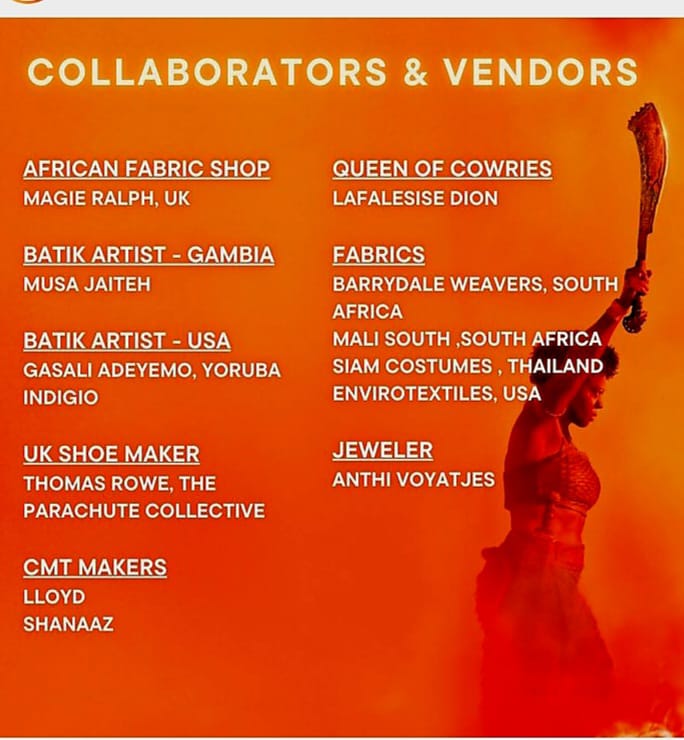

Take us on your journey from when you started out until now. How proud are you of how far you’ve come?
My career began in 1989, when I first joined Nike’s Centre for Arts and Culture, the Nike Gallery. I’d been introduced to the arts since I was a young kid living with my parents, but the gallery had a lot of impact in my life. Yoruba Indigo is my passion because of its impact and what it represents in my culture (Yoruba in southwest Nigeria).
I studied at Nike’s Centre for ten years in Osogbo, so visiting my mentor, Nike Adebiyi Okundaye, made me so happy. I also call her ‘mother’ because someone who gave you a life is a mother. I learned a lot from her; she gave me life. That’s why, whenever I come home, I always go back to say thank you and hello to her.
I was born in Osogbo, Nigeria, and raised in the nearby town of Ofatedo. In 1996, I left Nigeria for my first trip to the United States. I came to teach a workshop, went back home, then came back again. Today I’m an African, tomorrow I’m a U.S. citizen. I’ve been traveling all over the globe for workshops, and yeah, I am very proud. I always say, “Never give up in life.” Anything you like, just stick with it. When you do something you enjoy, your mind tells you to keep doing it. You don’t know where it can take you in the future.
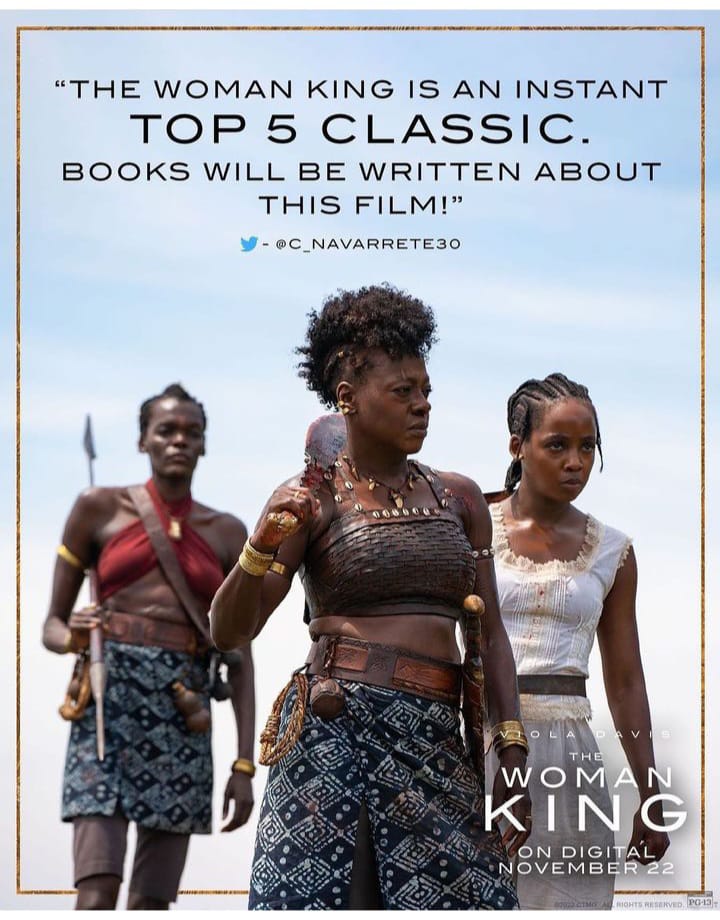

What were the challenges encountered in making designs for The Woman King?
I didn’t even know this was going to be possible when they first contacted me. They wanted everything to happen quickly. I was on the road, holding workshops. They tried to get a hold of me; they wanted me to come in and be a part of the project.
But in an industry like film, they want everything done so fast. They sent me the pattern they wanted Viola Davis to use and said, “Can you do this in two weeks?” I said it was impossible – it was hand-made and wouldn’t be fast. These things take time. I have to spend a lot of nights and days in my studio. I also don’t like to rush my work because I like to do it in a professional way.
When I sent them the first design, they rejected it. They said something was missing. They wanted it to be precise, just as they wanted it to appear on the screen. I said, “Woah!” But we thank God for the stress and challenges. We were able to find a common ground and work with the piece they were really happy with. So, yeah, the challenge in The Woman King was that they wanted everything done quickly and efficiently. I let them know I’d do it, but it will take time if they’re willing to work with me that way.
What piece of advice do you have for other African creatives, especially those in the textile industry?
My advice for artists, both in the United States and Nigeria, is to stick to what they are doing. It doesn’t grow overnight. There are lots of challenges so it takes a lot of courage. I always tell the artists in Nigeria: whatever you do, stick with it. Do it with love. I thank my parents who raised me to be who I am today. When I started, I didn’t focus on making money. I just wanted to study and learn history. That was my major when I was back home in the 90s. But I am where I am today and I’m thankful.
It will not be easy, and growth does not occur overnight, but when you stick with it, you’d grow. At first, you might not see yourself moving or growing, but people are watching and they’re seeing you move. And I believe in God. In everything you do in life, you have to believe in something.
Must See
-

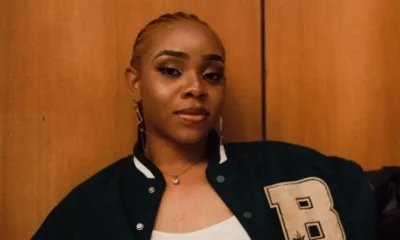


Entertainment
/ 4 months agoFaveSzn’s Revelation: Dating Choirmaster at 10 and Sexual Curiosity
Nigerian singer, Chidozie Ugochinyere, popularly known as FaveSzn, has revealed that she once dated...
By Flying Eze -

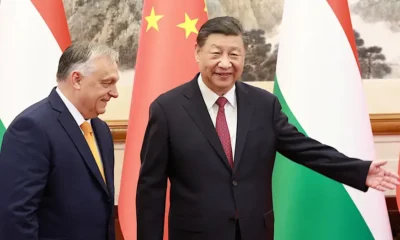


Europe
/ 4 months agoWhy Hungarian Prime Minister Orban visited
Two months later, the leaders of China and Hungary met again. Hungarian Prime Minister...
By Flying Eze -

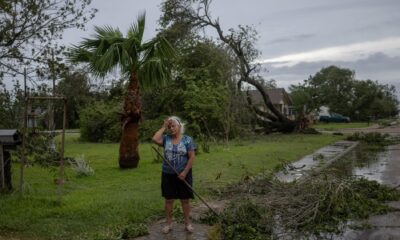


News
/ 4 months agoThree dead and millions without power as Tropical Storm Beryl hits Texas
Man, 53, and woman, 74, killed by fallen trees and third person drowns amid...
By Flying Eze
